Project Description
Prize Winners 2001
Television Prize
Patrice Romedenne
„Pour en finir avec l’extrémisme”
France 2
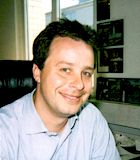
Patrice Romedenne
The film from the series “Envoyé Spéciale” (France 2) delivers a well-researched inside view of right-wing extremist violence. It shows the perpetrators and victims as well as those who contribute to the fight against right-wing violence as breakaways from the right-wing scene.
With equal fairness, Romedenne shows the public condemnations of the extremism by the population and state.
The jury commends that a problem which has meanwhile taken on European dimensions can be overcome – if it is fought with concrete actions and not with hysteria and overreactions.
Television Prize – Short Reportage
Jörg Krause
“Who was Omar Ben Noui? – From Algiers to Guben and Back”
ARTE

Jörg Krause
The Algerian “Omar Ben Noui” leaves his home country for fear of Islamic terrorism and hopes to find work and safety in the eastern German town of Guben. A group of far-right youths hound him through the city, causing his deadly fall.
Based on a single person and with simple cinematic methods, Jörg Krause has exemplarily highlighted the menace and repercussions of political extremism.
Radio Prize
Lisa Huth
„Mir gehen nur niwwer kaafe“
Saarländischer Rundfunk
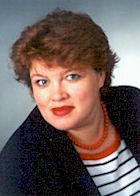
Lisa Huth
The main prize in the Radio category was unanimously awarded to Lisa Huth for her feature “Mir gehen nur niwwer kaafe” (“Just popping out to the shops”) – What the people of the Saarland and Lorraine really know about one another”. The author vividly describes the everyday life of the Franco-German neighbourship.
She shows in her humorous manner that the depth of a shared past is clearly evident despite the constant stereotyping.
Print Media Prize
Dorothea Hahn
„Mörderisches Millieu‘“
die tageszeitung (taz)
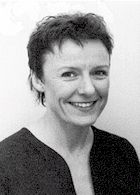
Dorothea Hahn
A well-researched reportage with administrative and juridical backgrounds that are also hard to fathom for German readers and show France from a very specific side.
Actually a negative example, but all the more important for it. The author has pointed out the danger of keeping a lid on scandals and dramas in closed societies. As a correspondent in Paris, it was a great achievement for her to have carried out intensive research in the province.
Special Prize of the ASKO Europa-Stiftung – Television Category
Dirk Heinemann
“Black Surf”
ARTE
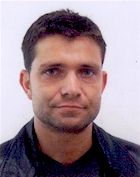
Dirk Heinemann
The German author Dirk Heinemann has taken a critical look for ARTE at how France handled the oil spill ravaging the Breton coast after the sinking of the tanker “Erika”.
The report makes clear that the pursuit of economic gain without regard for the environment triggers an ecological disaster which the coastal dwellers and state face helplessly for a long time.
Special Prize of the ASKO Europa-Stiftung – Radio Category
Ruth Jung
“The World is no Commodity – José Bové and the Farmers’ Protest in Southern France”
Deutschlandfunk, Saarländischer Rundfunk, Westdeutscher Rundfunk
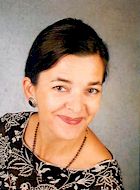
Ruth Jung
The ASKO Special Prize goes to Ruth Jung for her report “Peasant Leader José Bové”. The author explains the backgrounds of the “José Bové” movement against globalization.
By way of varied and lively testimonies, Ruth Jung shows the regional coherence in southern France and the new forms of opposition by farmers’ unions. This broadcast contributes to understanding a French phenomenon of social mobilization.
Special Prize of the ASKO Europa-Stiftung – Print Media Category
Matthias Beermann
„Bauernland ist abgebrannt“
Weser-Kurier
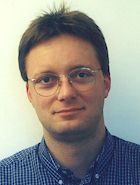
Matthias Beermann
The author has brought up a painful subject for the French economy and society. He relates that the agricultural policy in France is experiencing a rethink the Germans have little idea of. He reiterates that the French see themselves as a country people who are attached to their soil.
He also highlights the personal drama of ruined smallholders while the myth of an internationally successful agricultural sector is maintained.
Special Prize of the ASKO Europa-Stiftung – Television Category
Pierre-Olivier François
“The Great Step Back”
ARTE

Pierre-Olivier François
The film by Pierre-Olivier François (ARTE) takes up one of the oldest and simultaneously burning problems in the relations between Germany and France: The fact that the neighbour’s language is taught and learnt less and less in both countries.
The author shows without sugar-coating why this is especially so in the computer age, but also illustrates how this “speechlessness” can be overcome.
Special Prize of the Franco-German Cultural Council – Radio Category
Emmanuel Laurentin
„Le poids de la mémoire allemande”
Radio France
Der Special Prize of the Franco-German Cultural Council goes to Emmanuel Laurentin for “The Weight of German Memory”, the portrait of a Franco-German Jewish family. This wonderful testimony shows the pain of a past one has come to terms with, and the depth of the legacy.
Special Prize of the Franco-German Cultural Council – Press Category
Jean-Christophe Ploquin
„Bouillon de Culture en Allemagne”
La Croix
The author communicates a hardly registered aspect of contemporary German literature by introducing young authors and young magazines that do not come on the market otherwise.
He caters to a demand amongst French readers for finding out about the new German literary generation, and makes the connection between literature and society because he also takes the changed attitude in Germany into account.
Special Prize of the Franco-German Youth Office
Harald Martin and Schüler
(Stefanie Müller, Jasmin Braun, Andreas Frank, Arnaud Seng, Lorraine Muller, Laetitia Kimmel)
“Rescue at the Border”
Saarländischer Rundfunk
The Special Prize of the Franco-German Youth Office goes to Harald Martin and/or the 6 pupils (three from Germany, three from France) he realized the feature with.
The authors highlight the extent in which the Franco-German border can still be an obstacle for rescue services. Despite the readiness of the emergency services, police and fire brigade, the legal hurdles are still many.
This lively reportage was produced as part of a radio project in cooperation with the secondary schools St. Avold and Saarlouis under the direction of Harald Martin.


